 When I began teaching, mentoring, and writing family-centered articles, I was working with the homeschool community. However, in 2016, as I started writing my book Becoming a Present Parent, I realized my message about connecting with children was beneficial to a wider audience.
When I began teaching, mentoring, and writing family-centered articles, I was working with the homeschool community. However, in 2016, as I started writing my book Becoming a Present Parent, I realized my message about connecting with children was beneficial to a wider audience.
I created a new website, maryannjohnsoncoach.com. I had many thoughts and ideas that I began sharing. However, on home-school-coach.com, there were over 600 articles that most families would benefit from. I started updating and republishing these articles on the new site. I’ve been working on this project for over eight years. It’s been a labor of love and is still a work in progress. This is because the ideas, thoughts, and experiences have never stopped flowing, and I am constantly writing new articles.
In 2011, I took a class on body language from 3 Key Elements because I had begun speaking from stage and knew it would be helpful. Then, the company offered a class taught by one of their trainers, Amy Walker, on how body language can assist you in understanding your kids and avoiding conflict.
I loved the class and gained much from it. Since I was working with families and children, I asked Amy if she would write an article on what she had taught the mothers and fathers in her class. She did, and the information was published as a two-part series on my old website in 2012.
I love the information in these two articles, which has proven useful. I’m republishing them in one article today. I am sharing it as Amy Walker wrote it with minor grammatical and punctuation changes. I know you will find value here. You will either say, “Wow, good for me. I already know that,” or “Gosh, I didn’t realize that.” In either case, it will jumpstart your mind, and you will look at how you respond to your children with renewed or new eyes. Enjoy.
Understanding Body Language by Amy Walker
Body Language is an extremely important part of communication. Did you know that 93% of communication is NON-VERBAL? That means your tone and gestures are saying far more than your words! In the last year, I have seen a huge growing interest from schools and parents in using body language to help kids perform better in school. I have personally trained for the Utah State Office of Education, the Department of Workforce Services Teen Program, American Leadership Academy, and other elementary/charter schools. Already for 2012, I am scheduled to teach over 900 teachers about body language. I know I use body language with my four sons daily! It’s a powerful tool to increase communication, trust, understanding, and learning. In this article, I hope to teach you the importance of Body Language and share examples of what to look for with your children.
Body Language is the body’s physical response to what is going on in the subconscious mind. As you study and understand the body’s unique language, you can gain insights into thoughts, learning patterns, emotions, and motivations. If you see the whole picture, you will be more effective as a parent and educator.
The conscious mind can hold onto about 7 thoughts at a time. The subconscious processes billions of things at the same time; every memory, feeling, idea, body function, all the way down to cell reproduction and breathing are taken care of by our subconscious mind. I am constantly fascinated by what I can ‘See’ going on in my children that they don’t even know how to express!
I want to teach you 5 basic gestures you can use TODAY to help increase communication with your children! Remember, Body Language is a LANGUAGE! It takes practice to become fluent! But hopefully, after this article, you will at least know a few “Words and Phrases” to look for! I will also provide a few examples of using this with my children.
Learn to Read Eye Movements
Eye movements are fascinating. As you watch a person’s eyes move, you will see where they go to access information inside of themselves. You can tell if the experience or decision is emotion-driven, influenced by others, or based on past experiences.
Movement 1 – When you see an individual look up and to the right, they are looking into the right side of their brain.
their brain.
Right-Side Brain Functions:
*Big picture thinking
*Future
*Creativity
*Artistic
*Imagination
*Vision
Movement 2 – When you see someone look up and to the left, they are looking into the left side of their brain.
brain.
Left-Side Brain Functions:
*Linear Thinking
*Details
*Logic
*Facts
*Numbers
*Past Experiences
Example 1
My 9-year-old son was upstairs doing his homework. He came downstairs, and I asked, “Did you finish your homework?” He looked up and to the right and then said, “Yep!” So, I clarified and said, “You did? You finished your homework?” He made the same move and answered yes again. I had seen the same move twice and knew I hadn’t imagined it! I had asked him a question that should have caused him to look into his past, into his detail section-left brain.
Instead, he looked into the big picture/ creative section of his brain. I realized clarification was necessary, so I asked, “So what did you do?” This time, he answered, “I did my math” and looked to the left. That answer matched. So, I clarified again, “What else did you need to do?” Looking a little less excited, he looked down and answered, “My spelling.” His body language told me that not only was his work not finished, but also why it wasn’t finished (Stay tuned for what looking down indicates!). Rather than arguing the next day about why homework wasn’t finished when he said it was, we were able to clarify, and I could see that he needed extra help and support.
Movement 3 – When you see someone look side to side (right or left), they are looking towards their ears, listening to outside influences.
ears, listening to outside influences.
Outside Influences Could Include:
*Parents
*Teachers
*Friends
*TV/media references
*Church or Civic Leaders
*Negative thoughts they hear inside their head
This is an EXTEMELY powerful indicator to watch for. If you want to help your child be happier and more successful, watch for how often they listen to others inside their mind. As a culture, we struggle with negative thoughts. Helping your child (and yourself) clear out the other people inside their head will help them feel better about themselves, and they will have more focus in moving towards what they want. I once read that the average person has between 25 and 50,000 thoughts daily. Highly successful athletes are closer to 15,000 thoughts a day. Their ability to focus and clear out the mind chatter helps them be more successful.
Movement 4 – Looking up towards the sky. Let’s not confuse this with the infamous eye roll. They mean very different things! When people look up towards the sky, they are looking to their Higher Power. They are looking for new answers, inspiration, and connection with whatever they believe in that is bigger than them.
very different things! When people look up towards the sky, they are looking to their Higher Power. They are looking for new answers, inspiration, and connection with whatever they believe in that is bigger than them.
A Tip for Parents
If you see your child look up and then give you their answer, please be cautious how you respond. They will feel a strong connection to this answer; it will intuitively feel right to them. We all have experienced a “Dream Crusher” at some point. I never want to be that dream-crusher for my children. It might not be an answer I love and am completely excited about. It also does not mean that is their answer for the rest of their lives. But right now, they are likely to feel very strongly about their thoughts, dreams, or ideas, and as they follow them, they will progress and grow.
Example 2
I taught at a school in front of teachers, parents, and students. I had a volunteer come up on stage. She was 16, and I was helping her adjust her body language so she could be more effective in delivering her message. I asked her what her message was, and she looked to the sides, then said, “I don’t know.” So, I asked again. This time, she responded but looked to the sides again. It still wasn’t her real message. After a few tries, she looked up. When her eyes came down, she spoke of kindness to others, knowing who you really are, and not hiding to make others feel comfortable. It was powerful, and everyone in the room felt its authenticity. Every part of her body language was stronger. Her tone was stronger because this time, she spoke a message that rang true in her heart. I could see from the first answer that she was worried about what other people would think. Because I saw the signs, I was more effective in helping her get to her real message.
Movement 5 – Looking down. When you see someone look down, they are looking into their emotions. They are soul-searching. This answer may take longer to find. It also takes more trust to share. If you see your child look down, it’s essential to stop what you’re doing and adjust your focus to your child. When they find their answer, they will check in with you. If you’re not paying attention, they are not likely to share their thoughts. They will swallow them down and decide that how they feel is not important enough for your time.
They are soul-searching. This answer may take longer to find. It also takes more trust to share. If you see your child look down, it’s essential to stop what you’re doing and adjust your focus to your child. When they find their answer, they will check in with you. If you’re not paying attention, they are not likely to share their thoughts. They will swallow them down and decide that how they feel is not important enough for your time.
Example 3
My 6-year-old was having a very naughty day. He kept pestering his brothers and seemed bent on a course of destruction! I asked him, “What’s going on, buddy?” He immediately looked down. So, I changed my question to “How are you feeling today?” He took a long time to answer. To the untrained eye, it probably would have looked like he was being defiant. But I knew to be patient. I waited, and after what felt like 5 minutes, he gave a quick peek at me. When he saw I was still listening, he looked up again and said, “I feel like I’m invisible.” An experience that could have ended in a time out, with lots of frustration on both sides, ended in a hug.
I LOVE working with teens and kids! They are truly amazing. They are wild and crazy, challenging, inspiring, and powerful all at the same time. As parents and teachers, if we can increase understanding and figure out what makes each of our kiddos tick, we will be much more effective at guiding them.
I invite each one of you to study your children!
Amy Walker is a wife, mother, and business owner. She is married and has four sons. She loves to read. She also loves music and has played the cello since childhood. Amy graduated from BYU with a degree in Linguistics and a minor in Teaching English as a Second Language. During college, she lived and taught English in Russia. She also taught ESL in public schools. She loves foreign languages and cultures.
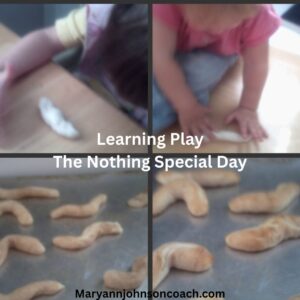 Back in the day, when my grands were small, I did many learning activities with them. I enjoyed it and so did they. As I mentioned earlier this spring, I’m sharing some of those past learning activities with you because you can have as much enjoyment and fun with your children or grands as I did. Sometimes all we need is an idea, and then we can run with it. So here goes!
Back in the day, when my grands were small, I did many learning activities with them. I enjoyed it and so did they. As I mentioned earlier this spring, I’m sharing some of those past learning activities with you because you can have as much enjoyment and fun with your children or grands as I did. Sometimes all we need is an idea, and then we can run with it. So here goes!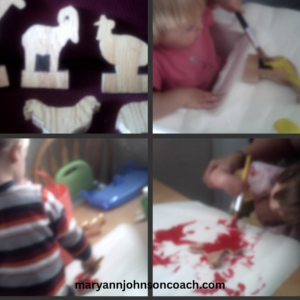 paper. When they were done and wanted another animal and a different color, we traded papers. Grandpa was very satisfied with the result. This particular range wouldn’t have his usual perfection, but it had memories and was fun to use.
paper. When they were done and wanted another animal and a different color, we traded papers. Grandpa was very satisfied with the result. This particular range wouldn’t have his usual perfection, but it had memories and was fun to use.
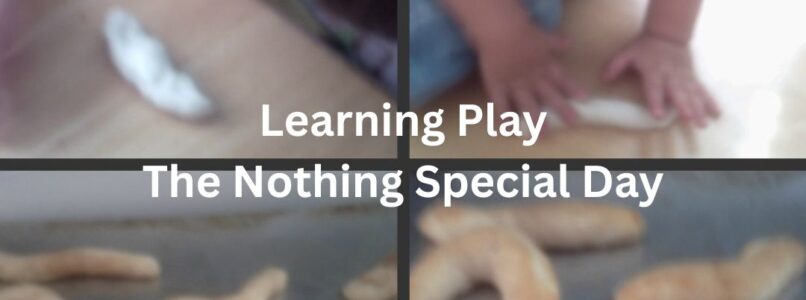


 white face paint and lipstick. The white face paint was Halloween makeup I bought many years ago. It worked well enough. For red, we used what grandma had, lipstick. As I say, keep it simple. Then we tried on all the glasses, boas, ties, and other costume items. Jack fell in love with a hat and a bow tie. He asked me if he could have them. I said he could surely borrow them. “I don’t like borrow” he said, “I want to have them!” LOL
white face paint and lipstick. The white face paint was Halloween makeup I bought many years ago. It worked well enough. For red, we used what grandma had, lipstick. As I say, keep it simple. Then we tried on all the glasses, boas, ties, and other costume items. Jack fell in love with a hat and a bow tie. He asked me if he could have them. I said he could surely borrow them. “I don’t like borrow” he said, “I want to have them!” LOL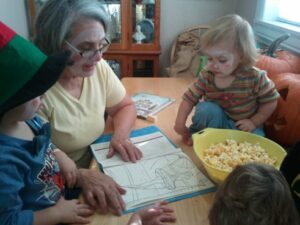 sometimes we aren’t! We managed with what we had, and I made a circus book. I found a terrific site of circus pictures, printed them off, and put them into a binder. (Jack, Mary, and Maggie used it until it fell apart.) It also made a great circus coloring book.
sometimes we aren’t! We managed with what we had, and I made a circus book. I found a terrific site of circus pictures, printed them off, and put them into a binder. (Jack, Mary, and Maggie used it until it fell apart.) It also made a great circus coloring book.
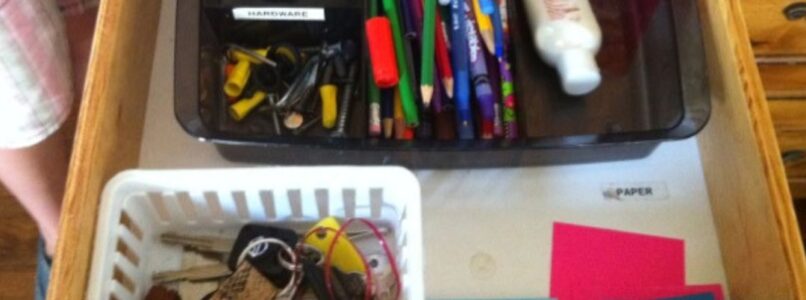
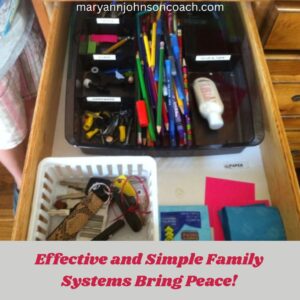 This week, as I walked with my friends Livia and Alysia, the conversation turned to their teens and the issues surrounding accomplishing things at home. At one point, Livia mentioned the need for successful systems. I told them how interesting the conversation was because I was working on my article for today, and it was about creating
This week, as I walked with my friends Livia and Alysia, the conversation turned to their teens and the issues surrounding accomplishing things at home. At one point, Livia mentioned the need for successful systems. I told them how interesting the conversation was because I was working on my article for today, and it was about creating 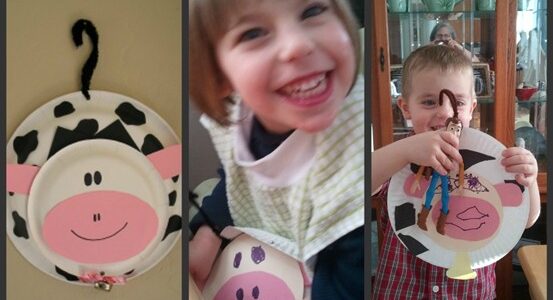
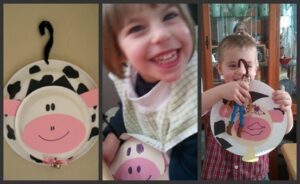 When I first began writing and publishing articles, it was in 2010. My grands, the ones I still live with, were all under five. As their grandma, I wanted to find ways to play and connect. I’m not a board game person! Tea parties and dress up are not on my list of fun things! The truth is, I like learning. I always have. I thought a lot about how I could ‘play’ with my grands and make it work for all of us. What I came up with was learning for fun. Every Tuesday, for several years, we would gather and play/learn. They looked forward to it and occasionally would tell me what they wanted to know or ask about at our next Tuesday session. It was a hit and was called Grandma School. : )
When I first began writing and publishing articles, it was in 2010. My grands, the ones I still live with, were all under five. As their grandma, I wanted to find ways to play and connect. I’m not a board game person! Tea parties and dress up are not on my list of fun things! The truth is, I like learning. I always have. I thought a lot about how I could ‘play’ with my grands and make it work for all of us. What I came up with was learning for fun. Every Tuesday, for several years, we would gather and play/learn. They looked forward to it and occasionally would tell me what they wanted to know or ask about at our next Tuesday session. It was a hit and was called Grandma School. : ) the pictures and I told them fun cow facts, such as, “Did you know a cow has four stomachs. You only have one, but a cow has four!!” That type of comment is usually followed by a question such as “Why Grandma?” Then we get to learn a bit more. Jack’s favorite cow fact was: “Daddy cows are called bulls and they go Moo really, really loud.” I did such a great daddy cow impersonation that it sent Jack into gales of laughter.
the pictures and I told them fun cow facts, such as, “Did you know a cow has four stomachs. You only have one, but a cow has four!!” That type of comment is usually followed by a question such as “Why Grandma?” Then we get to learn a bit more. Jack’s favorite cow fact was: “Daddy cows are called bulls and they go Moo really, really loud.” I did such a great daddy cow impersonation that it sent Jack into gales of laughter.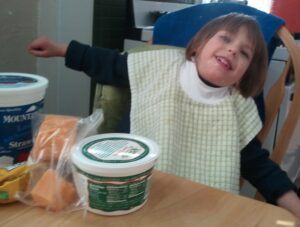 After the books, we did a cow activity. I had created a picture sheet on my computer that showed cool foods that are made from cow’s milk: cheese, cream, ice cream, milk for cereal, cottage cheese, sour cream, etc. I also had the real item on the table, if we had it. We looked at the pictures, talked about each item, and then tasted it. Of course, we all liked the cookie dough best. (It has milk in it!)
After the books, we did a cow activity. I had created a picture sheet on my computer that showed cool foods that are made from cow’s milk: cheese, cream, ice cream, milk for cereal, cottage cheese, sour cream, etc. I also had the real item on the table, if we had it. We looked at the pictures, talked about each item, and then tasted it. Of course, we all liked the cookie dough best. (It has milk in it!)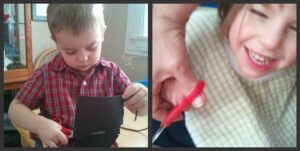 way, but then switched to using two hands and having me hold and turn the paper. Special scissors with 4 finger holes allowed me to help Maggie cut her own cow spots. She was thrilled. (Remember, Maggie, who is now eighteen, has severe cerebral palsy, so doing anything with help thrilled her and still does.)
way, but then switched to using two hands and having me hold and turn the paper. Special scissors with 4 finger holes allowed me to help Maggie cut her own cow spots. She was thrilled. (Remember, Maggie, who is now eighteen, has severe cerebral palsy, so doing anything with help thrilled her and still does.)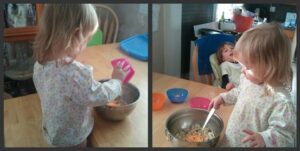 We ended the day by making mac and cheese. Cooking was a favorite activity, so everyone helped. The kids liked tasting the powdered cheese. We had our mac and cheese for lunch, and it was delicious. Maggie, Jack, and Mary decided that having cows in our world is a very good thing.
We ended the day by making mac and cheese. Cooking was a favorite activity, so everyone helped. The kids liked tasting the powdered cheese. We had our mac and cheese for lunch, and it was delicious. Maggie, Jack, and Mary decided that having cows in our world is a very good thing.
 I’ve written many articles on the importance of making sure the story we tell ourselves is helpful to our sense of well-being, healthy relationships, and happiness. How we perceive something matters.
I’ve written many articles on the importance of making sure the story we tell ourselves is helpful to our sense of well-being, healthy relationships, and happiness. How we perceive something matters.
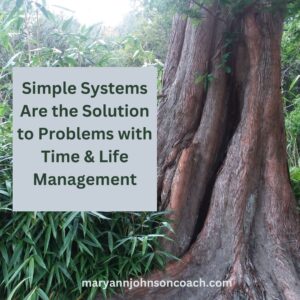 I have learned from lived experience that simple systems are usually the solution to difficult problems in time and life management. This was not an easy lesson to learn, and I occasionally still ignore this truth, but when I do,
I have learned from lived experience that simple systems are usually the solution to difficult problems in time and life management. This was not an easy lesson to learn, and I occasionally still ignore this truth, but when I do,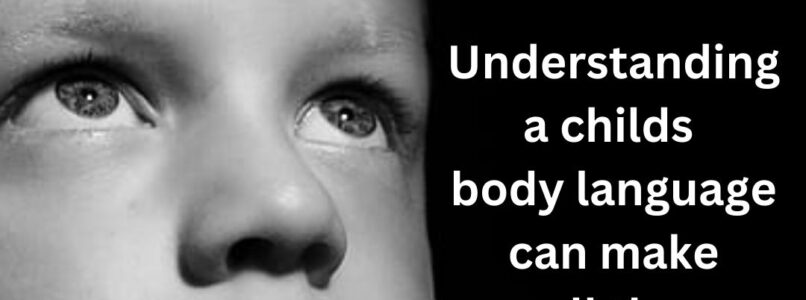
 When I began teaching, mentoring, and writing family-centered articles, I was working with the homeschool community. However, in 2016, as I started writing my book Becoming a Present Parent, I realized my message about connecting with children was beneficial to a wider audience.
When I began teaching, mentoring, and writing family-centered articles, I was working with the homeschool community. However, in 2016, as I started writing my book Becoming a Present Parent, I realized my message about connecting with children was beneficial to a wider audience. their brain.
their brain. brain.
brain. ears,
ears, very different things! When people look up towards the sky, they are looking to their Higher Power. They are looking for new answers, inspiration, and connection with whatever they believe in that is bigger than them.
very different things! When people look up towards the sky, they are looking to their Higher Power. They are looking for new answers, inspiration, and connection with whatever they believe in that is bigger than them. They are soul-searching. This answer may take longer to find. It also takes more trust to share. If you see your child look down, it’s essential to stop what you’re doing and adjust your focus to your child. When they find their answer, they will check in with you. If you’re not paying attention, they are not likely to share their thoughts. They will swallow them down and decide that how they feel is not important enough for your time.
They are soul-searching. This answer may take longer to find. It also takes more trust to share. If you see your child look down, it’s essential to stop what you’re doing and adjust your focus to your child. When they find their answer, they will check in with you. If you’re not paying attention, they are not likely to share their thoughts. They will swallow them down and decide that how they feel is not important enough for your time.
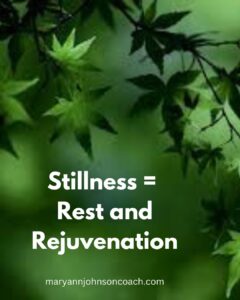 My husband was watching the show The Irrational. It’s about a behavioral science professor who solves tough police cases. I was in the kitchen and could hear it. The main character had an appendix surgery. He tried to rise from his bed a few times because there was a case he wanted to get going on. His sister had to nag at him to remain in bed and heal. At one point the professor spoke with a priest, while still in the hospital. The priest said, “St. Stillness has visited you.” Then he smiled and the professor replied, “Oh, stillness. I’m not very good at it.”
My husband was watching the show The Irrational. It’s about a behavioral science professor who solves tough police cases. I was in the kitchen and could hear it. The main character had an appendix surgery. He tried to rise from his bed a few times because there was a case he wanted to get going on. His sister had to nag at him to remain in bed and heal. At one point the professor spoke with a priest, while still in the hospital. The priest said, “St. Stillness has visited you.” Then he smiled and the professor replied, “Oh, stillness. I’m not very good at it.”
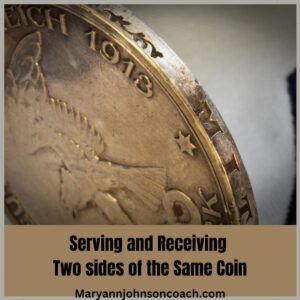 Let me tell you a moving story about my grandpa. My grandmother had passed away, and my grandfather who was in his late eighties, was living with his daughter and fading. I visited him and he was happy to see me. We talked for a while and then I visited with my Aunt Carol Lynn.
Let me tell you a moving story about my grandpa. My grandmother had passed away, and my grandfather who was in his late eighties, was living with his daughter and fading. I visited him and he was happy to see me. We talked for a while and then I visited with my Aunt Carol Lynn.
 My friend Livia read a book about Neal A. Maxwell. In the book, they used the phrase ‘peaceful intensity’ to describe how he managed his busy life. It’s a way of being that can be cultivated. It involves how we perceive
My friend Livia read a book about Neal A. Maxwell. In the book, they used the phrase ‘peaceful intensity’ to describe how he managed his busy life. It’s a way of being that can be cultivated. It involves how we perceive